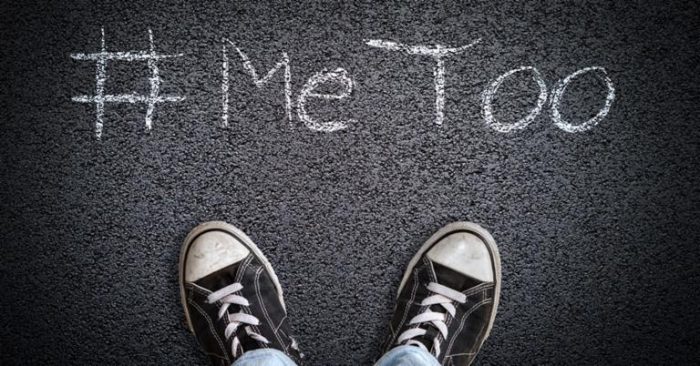 With stories of sexual abuse perpetrated by public figures continuing to be in the spotlight, as well as the rise of the #MeToo movement, there is a growing need for parents and caregivers to educate children and teens about the difficult topic of sexual abuse.
With stories of sexual abuse perpetrated by public figures continuing to be in the spotlight, as well as the rise of the #MeToo movement, there is a growing need for parents and caregivers to educate children and teens about the difficult topic of sexual abuse.
According to RAINN (Rape, Abuse & Incest National Network), every 92 seconds a person in the U.S. is sexually assaulted. Every 9 minutes, that victim is a child.
“Before the age of 18, one in every four girls and one in every six boys will be sexually abused,” said Dr. Lynda Lee Carlisle, a psychiatrist and trauma specialist from Seattle Children’s Psychiatry and Behavioral Medicine clinic. “While it can happen to any child, those most vulnerable are intellectually disabled or identify as LGBTQ+.”
Sexual abuse is rarely committed by a stranger. It is often by someone who the child knows and trusts. While some may think sexual abuse only involves physical contact, it can also be done without contact in the form of inappropriate photos or videos, exposure or other behavior.
“We commonly see children abused by a family member,” said Dr. Carole Jenny, child abuse fellowship director of Seattle Children’s Protection Program (SCAN). “It is also more likely to occur in blended families, with the abuser being a step-parent or a parent’s boyfriend or girlfriend.”
However, adults are not the only perpetrators of abuse towards children. Some children are also prone to committing sexual abuse towards other children, often with those that are younger than them.
“A child who abuses another child typically does it due to a poor understanding of boundaries, lack of parental supervision, and/or drug and alcohol use,” said Carlisle. “Surprisingly these can be children who have not experienced any sort of sexual abuse themselves. Sometimes it can stem from severe behavioral issues where they seek dominance or power over another child, as well as exposure to domestic violence.”
The effects of sexual abuse
The psychological effects of sexual abuse can be extremely damaging on a child and can lead to lifelong psychological problems including post-traumatic stress disorder (PTSD), depression and substance abuse.
Many people often question why sexual abuse victims wait to report the abuse they experienced many years later.
“Studies show that 70% of people who were sexually abused as children don’t report it until they are adults,” said Jenny. “This is often due to the stigma attached to sexual abuse, in which a person may feel embarrassed or guilty that it happened to them.”
This is why Jenny and Carlisle advise parents to start talking to their children as early as possible about sexual abuse.
Tips to help empower your child to speak up about sexual abuse
“While it can be a difficult topic to open up about, it is crucial that children understand the boundaries and what appropriate behavior is,” said Jenny. “Around the age of 3 years old is when I suggest parents begin educating their children, as this is the time when they develop language skills.”
The following are recommendations Jenny and Carlisle have for parents on how they can address the topic of sexual abuse with their children and teens.
- Teach your child the anatomically correct terms, not ‘nicknames,’ for their body parts.“A child needs to learn that they can be open when talking about their body parts and not feel embarrassed or ashamed,” said Jenny. “When children feel uncomfortable talking about certain body parts, they are less likely to tell you if someone is touching them inappropriately.”
- Have your child understand that some of their body parts should be kept private.A child will learn that only certain people, like their own parents or medical professionals, are allowed to see or touch these parts in an appropriate way. “To help a child recognize where these parts are located, you can use the terms, ‘bathing suit area’ or ‘underwear area,’” said Carlisle.
- Help your child practice healthy boundaries.“Teach them they have the option to say ‘no’ if they feel uncomfortable with the way someone touches them,” said Jenny. Carlisle adds, “They should also understand the boundaries of others, and that it is not okay to touch them in an inappropriate way.”
- Be supportive and listen.“If your child feels that they were touched inappropriately or witnessed something that made them uncomfortable, discuss it with them and ask questions,” said Jenny. “Do not dismiss their concerns. It is important you allow your child to speak up and share their experience with you so you can provide them with the help they need.”
“With the stigma that continues to surround the topic of sexual abuse, it is critical that parents have conversations with their children about it often to empower them to talk to you in a situation where they feel like they were sexually harmed,” said Carlisle. “The most important thing they should know is if it happens to them, it is not their fault and their only responsibility is to report it and seek help.”
If your child needs treatment for sexual abuse or sexual aggression, please contact the King County Sexual Assault Center at 888-998-6423 or Harborview Center for Sexual Assault and Traumatic Stress at 206-744-1600.
Resources
- A Safer Family. A Safer World.A resource for parents and caregivers of kids ages 0–12 on preventing child sexual abuse.
- Talking to Your Kids About Sexual Assault, RAINN (Rape, Abuse & Incest National Network)
- Coping with the Sexual Assault of Your Child
- Books about Sexual Assault Prevention and Recovery

